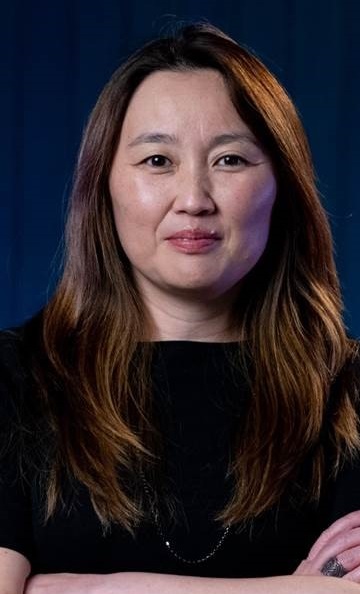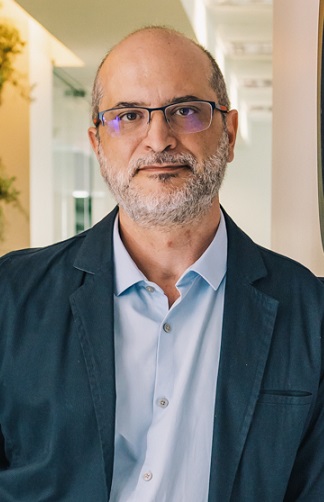Ivanti has announced the results of its State of the Digital Employee Experience (DEX) study. Ivanti worked with global Digital Transformation experts and surveyed 10,000 office workers, IT professionals and the C-suite to evaluate levels of prioritization and adoption of DEX in organizations and how it shapes daily working experiences for employees.
The report revealed that 49% of employees are frustrated by the tech and tools their organization provides, while 64% believe the way they interact with technology directly impacts morale.
In fact:
- 26% of employees are considering quitting their jobs because they lack suitable tech,
- 42% have spent their own money on better tech to work more productively,
- and 65% believe they would be more productive if they had better technology at their disposal.
Conflicting views remain between C-suite, IT and employees when it comes to the future of work and technology’s role in enabling the culture of hybrid work. Just 13% of knowledge workers prefer to work exclusively from the office, yet 56% of CXOs still feel that employees need to be in the office to be productive.
Although 74% of the C-suite report they are more productive since the start of the pandemic – showing a disconnect between what they have experienced and what they believe employees need to do to be productive.
As employee experience continues to fall to the bottom of the C-suite agenda, IT will continue to deprioritize it on theirs with only 21% of IT leaders considering the end-user experience to be the main priority when selecting new tools.
“Ensuring positive employee digital experiences is the new cornerstone of modern business IT management,” said Steve Brasen, Research Director with Enterprise Management Associates.
The top challenges reported by office workers include too many emails or chat messages (28%), a lack of connection to co-workers (27%) and software not working properly (23%).
Despite these challenges and executive skepticism, all groups reported being more productive in the era of hybrid work, highlighting that it is not so much the place of work that impacts productivity but the experience that people have when interacting with technology.
Vanessa Mizue, Director of Human Resources, Engineering

IT companies have a practice of looking a lot at the excellence of their customers, which means the search to deliver the best result through the use and creation of new technologies and solutions. However, the look of offering digital experiences must target all employees who are responsible for keeping the business working.
At Engineering, a global IT company and consultancy specializing in Digital Transformation, we use three platforms that work on issues such as professional development, internal processes and healthcare. Regarding them, we can mention the following:
Engknow: Learning Management System (LMS) platform that manages all the content of information networks and provides employees with access to courses, both for the development of hard and soft skills.
It is possible to access the platform virtually as well. Despite being held live, we make it available within this platform so that employees can access it and clarify doubts at any time.
Conecta: The objective of this application is to advise the employee of everything that happens in the company. More than that, it enables integration by promoting greater participation within a collaborative and content environment, in which employees can share their deliveries, congratulate work partners and search for information regarding internal documents.
All this makes it a democratic environment. To exemplify, we have teams that work in loco within companies, and sometimes, they only use corporate emails from these companies and rarely access the Engineering emails. Then we asked the question: How can we communicate with these people?
We brought this app so that people can have all the valuable company information within easy reach daily.
Integra: It is a well beings app employees can use to schedule telemedicine and telepsychology appointments.
Integra is a program that includes nutritional and physical coaching. Thus, we look at the well-being of the employee broadly.
The digital world organizes through platforms and even within companies. Working with them in the corporate environment is a way to offer digital experiences that bring employees closer to developing their best, both professionally and personally.
Gisele Scalo, Director of Human Resources, SONDA Brazil

There is a lot of talk about Digital Transformation, agile organization, process automation and innovation.
Currently, bringing management within reach not only benefits the company, which can gain in terms of costs and productivity but also meets the desire of employees to have information and their needs covered quickly, easily and without bureaucracy.
Given this scenario, we at SONDA have been looking for alternatives on different fronts to modernize our tools. The first was to offer leaders access to information with ease, transparency, security and agility.
Today, a company leader can evaluate the remuneration of his team in relation to the market, make appropriate decisions based on data available in different dashboards, being able to manage time, people turnover (voluntary and involuntary turnover), demographic data, periods of absence and more.
For employees, we seek to connect them to the company, the company news, and its values and strategies, going beyond traditional communications or email marketing.
To meet this, we have SONDA Conecta, which works as an internal social network, allowing people to get information and share important news from their day-to-day lives.
It means that with the application, we offer news and information besides reinforcing our values and policies, benefiting everyone with connectivity at their fingertips.
And when it comes to career and development, professionals have access to seven career clusters through an internal learning platform, which makes available the profiles, requirements and skills they must develop for each area.
In addition, many courses are available to prepare for choosing a career path. And, to encourage learning, the completed courses become coins to exchange for education-related prizes.
With these actions, our challenge is to intensify digitalization and promote the automation of processes and activities without losing human contact.
Javier do Porto, Manager of the Talent Development Center, Globant Brazil

Staff digital experiences must intersect through agile solutions that allow the creation of a dynamic and fluid journey.
It is necessary to balance the time required for each employee to interact with these solutions with individual and collective goals.
Within digital experiences, employees must visualize their path, achievements and opportunities for improvement, as they need to see their professional development plan being an attainable desire. Including employees as transforming agents of their own digital experiences brings the possibility of approaching and keeping the solutions available to them up to date.
Considering this, at Globant, a digitally native company focused on reinventing business through innovative technological solutions, we identify our employees as ‘Globers’ and seek to detect how we can further develop their talent within the company, as this movement drives the transformation of the businesses of our clients.
Internally we use our own solution called Starmeup, a platform based on behavioral sciences enhanced by Artificial Intelligence (AI) to help companies improve their own culture. It is a solution that allows each Glober to recognize the work of their peers, share their best moments at Globant and meet the people who make a cultural impact in the organization.
Another Globant initiative is the Open Career program, which allows employees to work on any other project in Brazil or anywhere in the world. If the professional finds an opportunity, it is possible to register using an internal tool and, after analyzing his technical condition, change projects even without having finished a current one.
This model allows professionals to search for projects where they would enjoy working anywhere.
Of the 950 employees in Brazil, 50 have already joined the program that was launched in Brazil in July this year.


